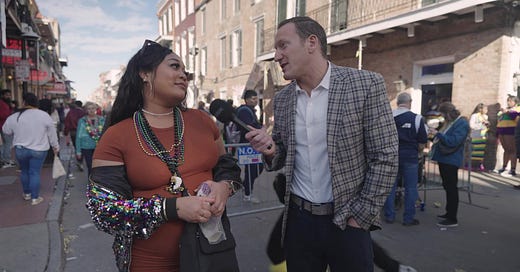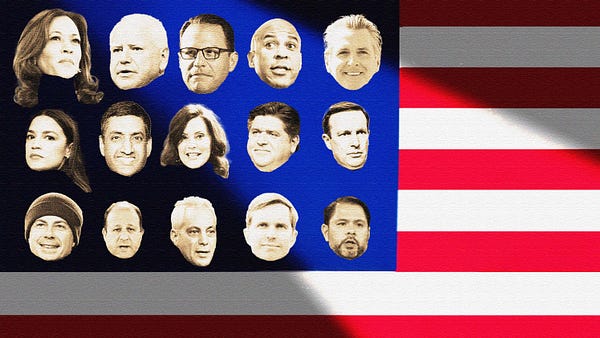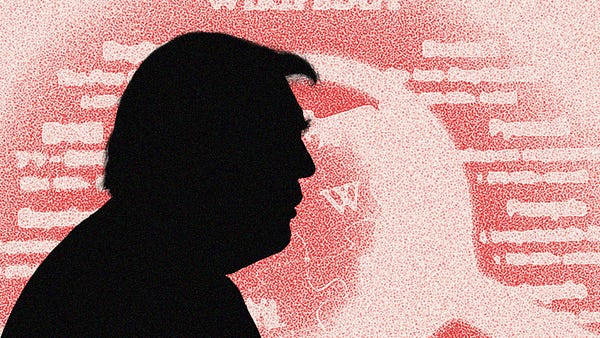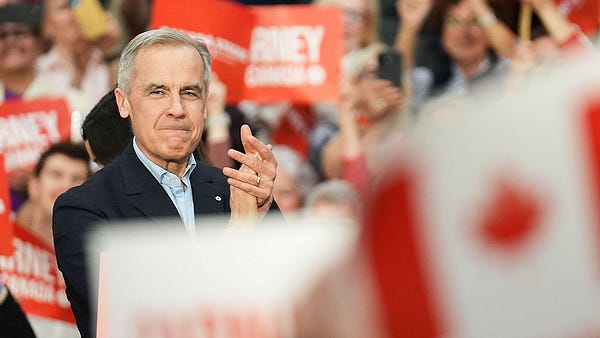
The Free Press

We all know the stereotypes of one another. The Bud Light–protesting Republican NASCAR fan. The they/them-pronouned museum worker unionizing for three months off during summer.
But aren’t these quick sketches all a little tired? Is this what you actually see in the world? Isn’t there more to say? I feel like I get enough of these caricatures reading the old world media (left and right).
And so we’re going to do things a little differently here as November 2024 comes upon us. Where everyone else is going to give you the worst version of the other side, reaffirming everything you already knew about how very, very bad the other team is—we’re hitting the road, The Free Press way.
Ben Meets America chronicles one journalist’s attempt to understand the American electorate. It’s a political series for the politically homeless—and an antidote to the idea that we live in a hyper-polarized society destined to hate one another.
Talking to people face-to-face generally reveals that they are neither hyper-partisan nor the cartoons we imagine them to be.
Well, some of them are. But they’re part of the story, too. And we are aiming to tell the whole story—or as much of it as we can over the next eight months—of what the hell is going on with the American voter in 2024. When we talk to a young Democrat, you’re not going to see the headline: BEN KAWALLER DESTROYS WOKE COLLEGE STUDENT. And when we talk to a football-loving Republican, you’re not going to see the headline: RACIST HISTORY OF SPORTS FANDOM, nor will our entire staff resign in protest unless we include trigger warnings in our content. So consider this our warning: Ben Kawaller is going to have a little fun meeting America.
You may have already seen Ben’s videos from the Iowa State Fair, Duck Hunting in Arkansas, and the Democratic Socialists in Chicago. They’re proof that Ben is a sane, hilarious voice who approaches all points along our increasingly wide political spectrum with curiosity, wit, and good faith.
That’s why, this year, we are making him an unofficial election correspondent. You’ll see him here, in your inbox, with regular columns and videos from across the country.
We’re calling it Ben Meets America. First up: Ben’s dispatch from New Orleans.
—BW
I recently went to Mardi Gras and spent a couple days committing the ultimate faux pas: talking politics at a party. Knowing that in vino veritas—or at least, in vino ludicrum (thank you, Google Translate)—my plan was to ask people, in their inebriation, what they would change about America if they were in charge. I figured these interrogations would yield some insights into the collective psyche of a polarized nation.
The primary insight: what polarized nation? Polarized suggests a clustering around the extremes—and while I spoke to a few enthusiastically left- and right-wing partygoers, they were at least matched by people describing themselves as moderate, independent, or completely disengaged. And many of the partisans were lukewarm. One black gay guy described himself as “liberal. . . ish.” When I guessed that one twentysomething boatyard worker from Maine leaned conservative he said, “Meh. Sure.” One elderly black woman who loved Obama and JFK resisted the label liberal entirely, as did two local high school seniors, though they rejected the word conservative as well (“I feel like that’s just so aggressive.”). When I asked another woman if she was conservative, she was stunned (though her reflexes seemed generally dulled). “I’m gay!” she told me. Did that mean she was a liberal? “I don’t know,” she slurred, then added, “Your camerawoman’s kinda hot.” This was hardly a population seething with pre–civil war rage.
Perhaps that’s no shocker—this was a bacchanal, not a constitutional convention—but you would think that if we were on the brink of a “national divorce,” at least someone would have said something like, “The problem is liberals,” or “Everything would be great without Republicans.” In fact, the overwhelming response to “How do we fix America?” was a plea for greater kindness and less division.
It was gratifying, as someone generally critical of the left’s culture wars, to see my own opinions so gloriously reflected by these people on the street. For instance, when I asked six self-identified liberals what the left gets wrong, two interviewees (both of them black) specifically cited “racism” and “race-baiting.” It was quite something, I thought, that in 2024 any African American should feel the need to remind his fellow liberals that “We’re all human.”
Other critiques were similar. “We can be sanctimonious,” one liberal-leaning voter told me. Another leftist lamented the inability to “relate to each other as individuals.” Another cited “cancel culture,” suggesting that the left is too “inclusive” of “over-thinkers.” I would call them jerks.
I got less self-critique from the right, but they’ve always been savvier at this kind of thing. If it’s self-flagellation you’re after, nothing beats Democrats.
Was I conducting a rigorous piece of political science? No, I was shooting the breeze with drunk people. But more serious adults have researched the psychology of our electorate, and their findings echo my own suspicions: that most Americans make up an “exhausted majority” whose views aren’t represented either by the orthodox left or the far right. The amplification of those extremes—and, I would argue, a craven kowtowing among the political right and the cultural left to each group’s most radical elements—gives an impression of a nation more “polarized” than it actually is.
My trip to New Orleans was the first in a series of stops I’ll be making around the country over 2024 to understand how people’s political identities (or lack thereof) are affected by this year’s face-off between two deeply unpopular heads of two increasingly unpopular parties. I hope to find out what real Americans actually think. And, as I have always thought of myself as a healer of nations, I hope to help bridge some of our supposed divides.
Or at least not make things any worse.
Ben Kawaller is an L.A.-based writer and host. If you believe in good-faith debate and the importance of finding consensus in our polarized times, support his cross-country coverage by becoming a Free Press subscriber today:















You are total shit at being a moderator
The serious aspect of these videos is the glimpse into "the man on the street." It is like Studs Terkel for the Instagram generation. I also appreciate that people he interviews push back when he asks pushy questions.
The only video I didn't like was the RFK one. I felt that Ben was out to find the least intellectually grounded people in the crowd. In my experience, thoughtful, smart people are attracted to RFK.